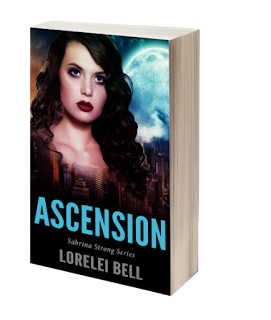I don't know how long I've kept a notebook filled with just words, but I have kept one for a number of years.
Why?
Well, you never know when you might need just the right word for some sort of scene you're writing. For instance movement. Getting your characters across a room, or across a street can either give your prose strength, make the image strong in the reader's mind, or convey the emotion of your characters. Let's face it, the action can be depicted with one very well placed noun or adjective to describe something as simple as walking, or movement. You don't want it to be a boring section where people are just walking somewhere, like you don't have the time to go to the trouble of actually doing your job—writing. You are a Word Smith. Your job isn't simply to get from point A to point B to get to the juicy moments in your story. Consider this, your novel is a long piece of prose. It's not just scene upon scene, upon scene, and in between there's people moving from one place to another and
boom they just simply get there. Make the journey interesting.
If you write every sentence, and take time to consider each and every word you use, you'll become a much better writer. Let's see how we can improve upon a couple of sentences in a scene I've written for a third novel.
Hobart pulled into the parking spot, and we got off his Harley. Without a word, we walked in and sat in a booth across from one another. The waitress came to our table, and filled the coffee cups, and left our menus before us.Not bad. But not all that exciting. You could improve upon it by adding some more descriptive words, action verbs or, by adding -ed to a noun, making an adjective to help create more descriptive phrases.
Now read how I've edited the following sentence to make it somewhat more exciting to read.
Hobart pulled his Harley into an empty slot next to a restaurant. Without a word, we breezed in, and slid into a booth across from one another. The waitress swung by and filled the coffee cups, depositing our menus before us.Why is this better? Because of the words I used to
show what each person is doing. The two didn't just walk in, they
breezed in. I could have used the word
sauntered, but I wanted it to sound like they walked more with purpose, a little quicker than a stroll. Plus
breezed sounds sort of cool, making the two sound somewhat different from everyone else who walks into that restaurant.
They
slid into their booths, instead of sat. When your characters sit, do they just sit? Or do they
fold themselves, plop, slouch, deposit themselves into the chair? Tell your reader how they actually did the sitting. It conveys so much more when you chose a better word than the usual, tired words like sat, or walked, or looked.
The waitress didn't just come by, but she
swung by. She's in a hurry, but she's doing her job, and doing it well, hitting all her tables with as much aplomb as she can.
I have three different notebooks where I keep a lot of these special words, or phrases, and they pile up all the time. One is a handy small notebook, about 5.5" X 4", which I keep on my desk within easy reach. It has all the quick words I need. I snatch them from books I read. Sure. Why not? If you see how another writer has made the most mundane thing like walking seem like something more, and it pops out at you, write it down on a slip of paper (I use an index card and keep it in the book as I read it).
After grabbing words either from the Thesaurus, or a novel, get yourself a new spiral notebook—doesn't need to cost much. With a dark marker, or thick ink, at the top of a page write
Walking/Running. Now skip several pages, and at the top of another, write
Looks/Stares/Gaze. Again skip some pages and write
Voice/Tone. As you go along, you'll think up more subjects.
Sometimes I have sub-categories where I have it broken down into more detail such as Eyes, Lips, Expressions, and anything else I think I can break down smaller, specific categories.
For instance, under
EYES:
Eyes slipped shut in bliss . . .Under
LIPS: Lips crimped into a smile . . .Under
GAZE: quizzical gaze or his gaze cut to me. . .Under
LOOK: disapproving look . . .You will find that any good book you pick up the author has found more interesting ways of saying something mundane. A simple “look” across a room could have significant meaning. How do you convey that meaning? Is that person angry? Happy? Does the look make the other person feel uncomfortable, desirable?
I suggest you get started on that notebook writing great words, or phrases down that you come across when you read, things that make you think, “wow that's a better way of saying it”. The more you make note of how another author writes, your writing will improve. Even jotting down some of what is written to examine how it was put together will help you improve your writing too. Make sure to have a smaller spiral notebook for your desk, so that while you're writing, you need that special word, and you can't quite think one up, you can grab it from your notebook.
Next week's subject: DIALOGUE!
Happy Writing!








